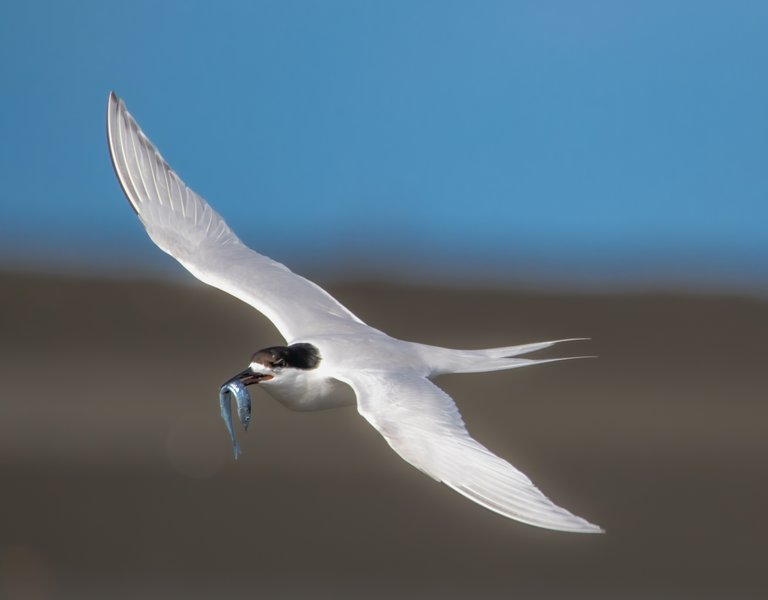
The white-fronted tern, or Tara, is one of New Zealand’s most graceful seabirds – a master of the air with a forked tail built for quick turns and daring dives. Each summer, Tara form colonies in special coastal places like Whatipu’s Scientific Reserve, raising their young in a delicate balance between nature’s rhythms and the threats they face.
The Friends of Whatipu, a volunteer group dedicated to protecting this unique environment, have spent years developing their Green Shed into a hub for conservation, education, and community action. The facility supports search and rescue operations, provides a base for predator control, beach clean-ups, and bird monitoring, and brings volunteers together for planting and weeding days – tackling invasive species like woolly nightshade, which harms both native ecosystems and human health.
Among the many species supported by the work of Friends of Whatipu, the Tara stands out. With agile flight and precision hunting skills, they feed on shoaling fish at sea and in the sheltered waters of the lagoon. Courtship is an aerial performance: a male offers a fish to a female mid-flight, and if she accepts, the pair form a lifelong bond.
Although they can live for nearly two decades, Tara are at risk. Introduced predators – cats, stoats, ferrets, and rats – take their eggs and chicks. Human disturbance also plays a role; even brief interference can cause nesting attempts to fail. Off-leash dogs and drones may seem harmless, but to these sensitive birds, they are anything but.
By protecting the fragile habitats at Whatipu and raising awareness of the challenges these birds face, the Friends of Whatipu are helping to ensure the Tara remains a familiar and graceful presence along our coasts for generations to come.